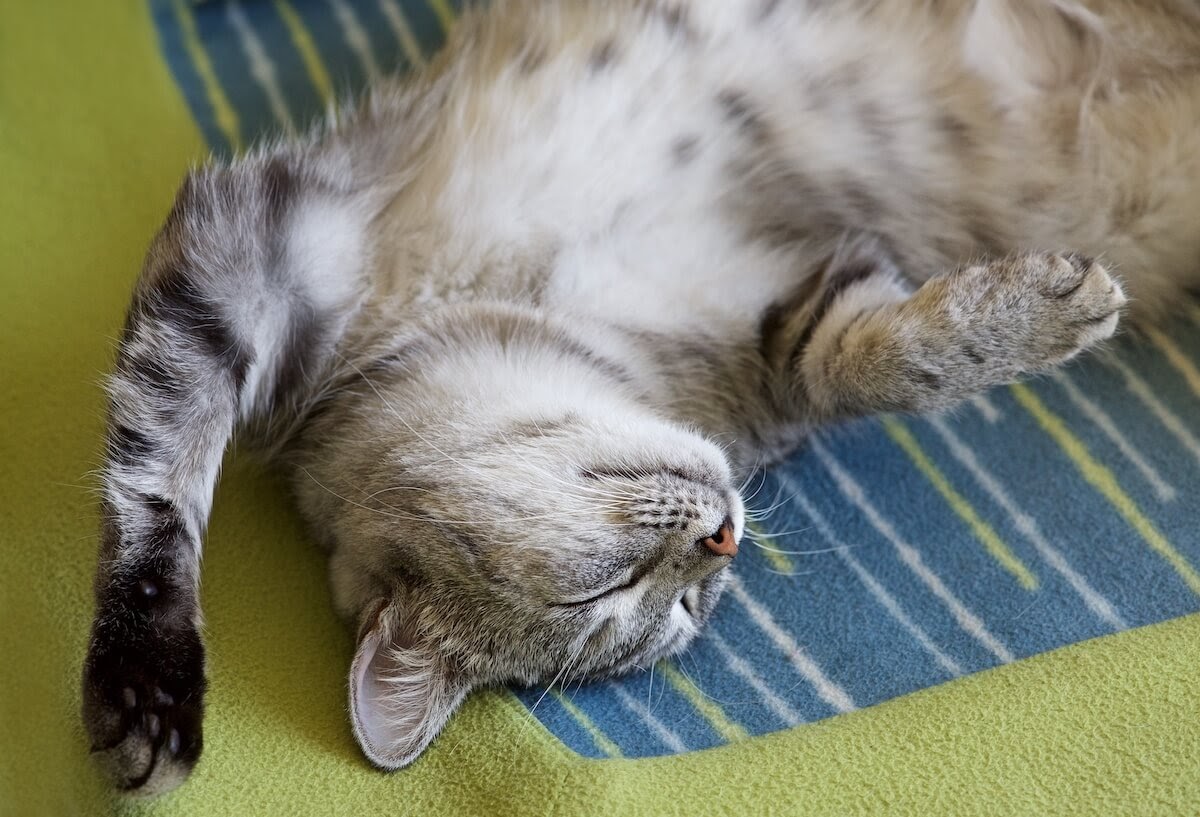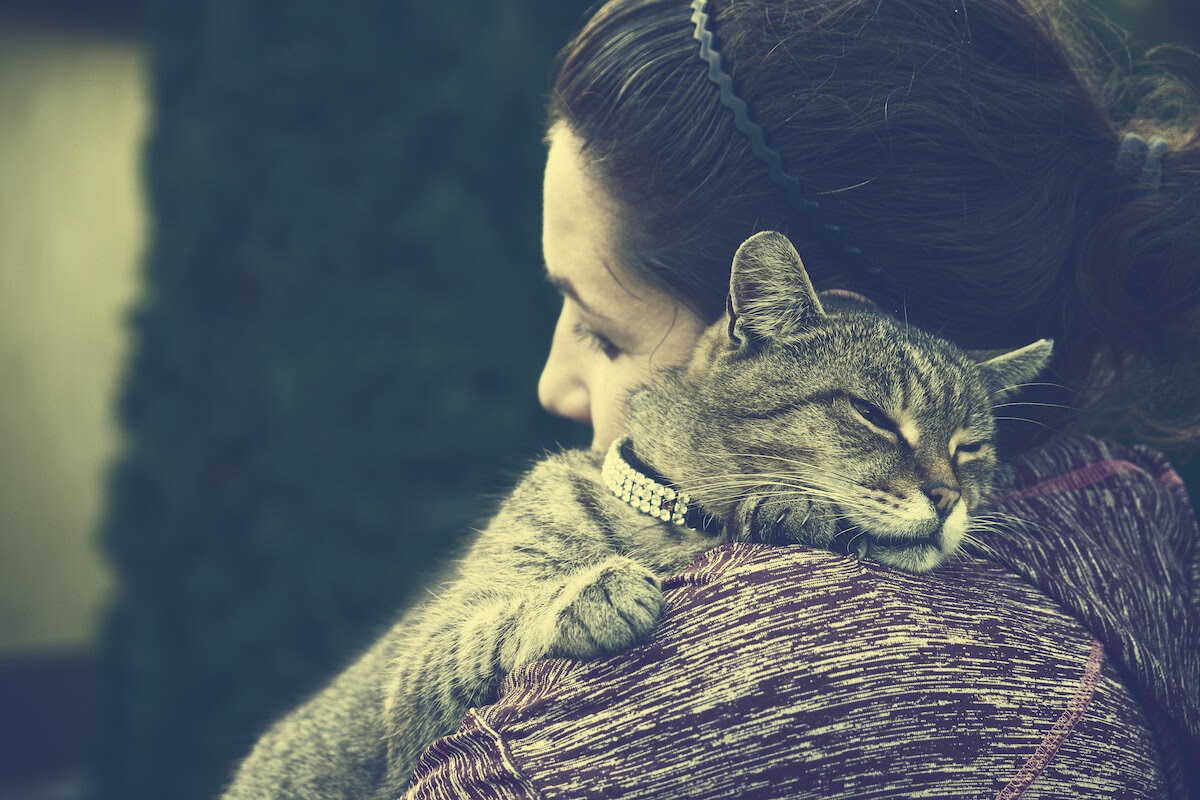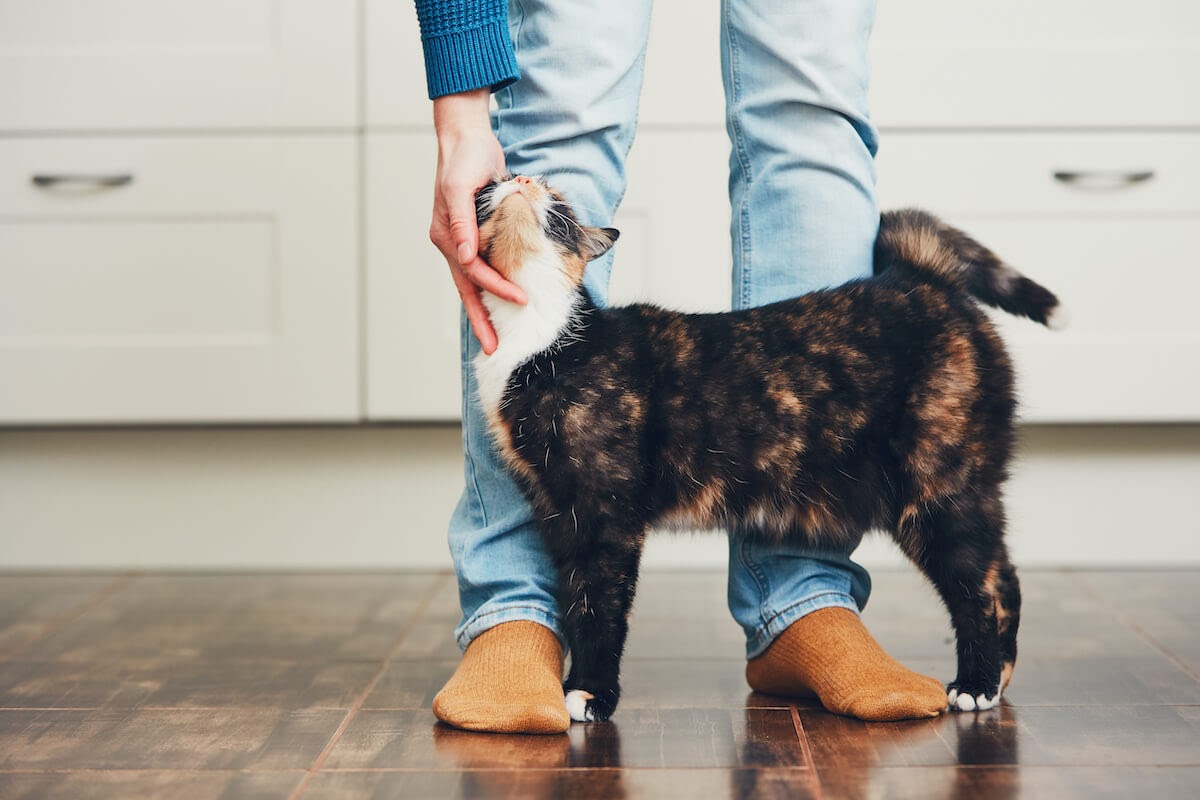Calm Your Cat Down: 7 Kitty Calming Tips For Your Anxious Cat
Is your cat showing signs of anxiety and not being their usual purrfect self? Cats like routine, familiarity and security and their behaviour can change if things change in their life, like unexpected visitors, new cats on the block or even moving furniture around.
You may think your cat is just being elusive (cats like to do things on their own terms), but if you are unsure if something is awry, look out for these signs to know if your cat is anxious:
- Is their tail twitching?
- Are their ears pointing backwards?
- Are they keeping their body low to the ground?
- Are they hiding, spraying urine or scratching more than normal?
- Have they suddenly gone off their food?
- Or are they grooming more than usual?
Try to understand what is making them feel anxious so that you can help them to become calm and enjoy their purrfect life. With any sudden changes to your kitty’s behavior it’s always best to get them checked out by the vet to ensure they’re not in any pain and do not have an underlying medical problem.
Be Patient!

Once you have determined that your furry friend is nervous and anxious about something, it's important you remain calm around them. You could make the situation even worse if you raise your voice, try to force them into a situation or admonish your cat in any way.
Be patient and try to help them through their anxiety.
7 Calming Tips for your Anxious Cat
1. Create a routine
Try to make sure they know what to expect each day - cats like routine and familiarity. Feed them at the same time day and keep their resources in the same place all the time. If they are an outdoor cat, let them outside at the same time each day (and make sure they have access to a cat flap to keep to their own kitty schedule!). Build in regular playtime to your daily routine as well as nap time as you both relax.
2. Let them call the shots
Cats like to feel in control and interact with humans on their own terms. Don’t ever force them to be with you or try to carry them as this will only scare them and they may struggle and try to get away so they can hide. Take their cue and they will let you know when they are ready to interact. If a stranger visits, make sure they understand that your cat will greet them in their own time and in their own way - you will probably find they rub against their legs if they are willing to come close. This is your cat leaving their scent on your visitor (not detectable by humans!). It’s a good sign although not necessarily an indication that they want to be picked up, but it's a step in the right direction.

3. Create a calm environment
All cats like to have their own space with their own comfy bed and resources. Make sure they have plenty of places to perch - cats like high places to jump on to and out of harm's way. Some cats are music fans too and research has shown that they are fans of classical music! So, if you plan leaving them on their own for a while, make sure you tune in to the right radio station!
4. Give them a safe haven
Give your cat somewhere they can retreat to where they feel safe and know that they won’t be disturbed. This is quite often a high perch, a window sill or maybe under a bed. Remember a human hug won’t work for a cat - they like their alone time where they can be quiet and return to a non-anxious frame of mind. Don’t be concerned if they stay there for a while - it can take some time for a cat to recover from a stressful situation.
5. Make changes slowly
Cats like routine and are not great fans of change, so if you are planning on bringing a new baby into the home, moving furniture around or even decorating, make sure you introduce your cat to the changes as slowly as possible so that they have time to adapt. For example, if you have a new human baby arriving into your home you can start preparing your cat for the new arrival in good time by using these tips.

6. Ensure they have all they need
If you have more than one kitty in the house, make sure they all have their own resources - use the n+1 rule if you have enough space meaning that each cat has their own of every essential as well as one extra resource available. Cat’s don’t like sharing, so each cat must have their own bed, their own food and drink bowls, litter tray and scratching post - to ensure there’s no kitty conflict that may make one of them anxious.
7. Learn from your cat
Try to understand what makes your cat tick. Watch their body language - what situations are they more relaxed in, what makes them feel comfortable, and what makes them anxious. Especially when you bring a new kitten home, everything will be new to them. So watch them carefully and let them take the lead. You want to encourage your kitten to interact and be friendly with humans, but be sure to let them take the lead and play (or not!) when they want to, to help them be confident. If you discover what makes them relax (and what they don’t like), you can make the changes necessary to relieve their anxiety - and have a totally relaxed home.
Calm Your Kitty
Would you like some assistance to help your cat feel calm and cope with the anxieties of everyday life? Try FELIWAY. A FELIWAY CLASSIC Diffuser provides comforting messages to your cat and when used in the home, it can help them feel calm, confident and secure. Simply plug into the room where your puss spends most of their time and ensure that there is no furniture blocking the diffusion; for most cats, you should start to see positive change within 7 days.
However, if anxiety signs continue you should always consult your vet to rule out any underlying medical conditions.
